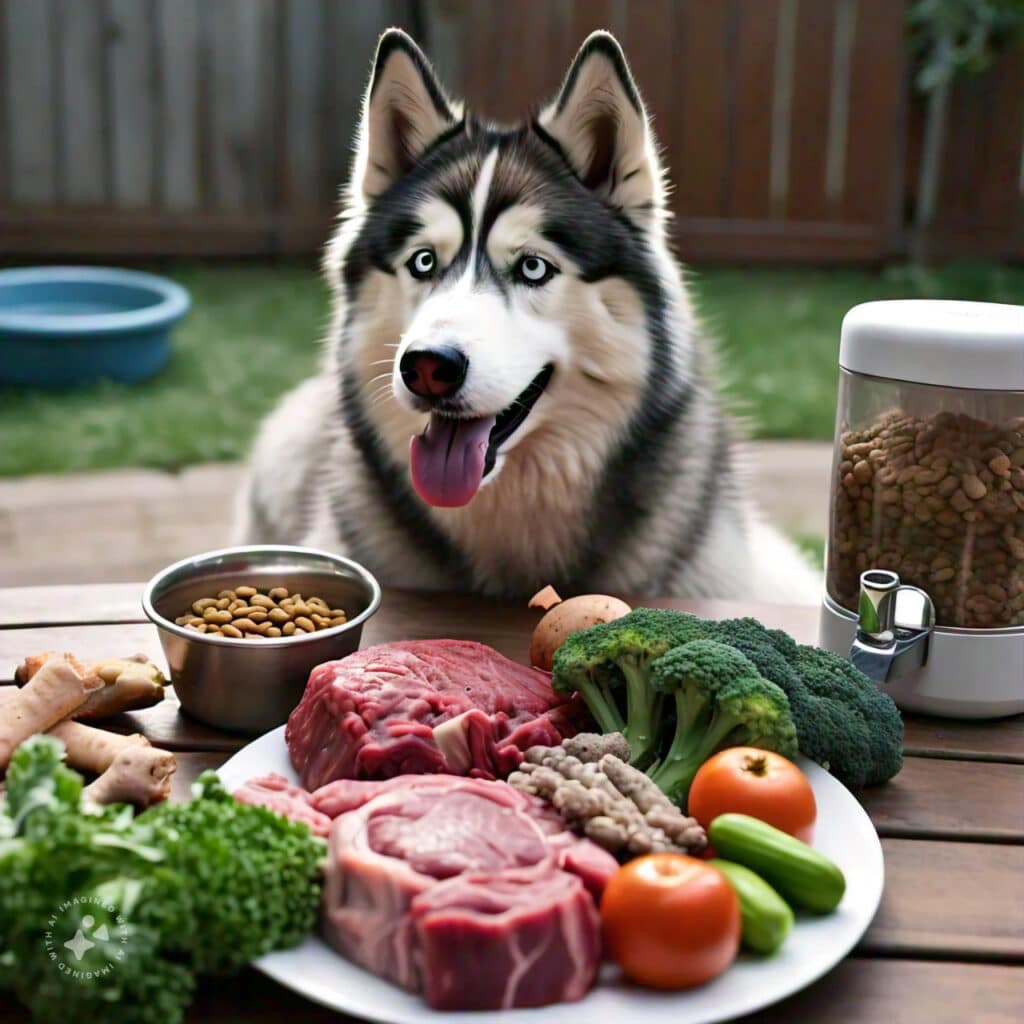People say huskies are active and like to try new things. But that much power needs to be fed. That’s where tasty food comes in! To stay at the top of their game, your husky diet needs the right mix of minerals. They’ll be strong enough to run around the yard, go on long walks, and even dig a hole to get to the other side of the yard, which you know they will do.
The Importance of a Balanced Husky Diet
The food you give your husky should have the right amount of minerals, vitamins, fats, and carbs. These foods are like meat and potatoes for them—they need them to stay lean and build strength. If your dog likes to run around the house or jump over things, they will need a lot of protein to stay in good shape.
But don’t forget how important vitamins and minerals are! You should give these to your husky every day to keep their hair shiny and their bones healthy. On top of that, they boost their defense system. Just like people, huskies need a lot of different kinds of food to stay fit. Getting enough of these nutrients from food can also help you stay healthy and avoid common health problems like stomach problems, skin irritations, and joint pain. If your husky is healthy on the inside and out, it will have more time to play and less time to go to the vet.
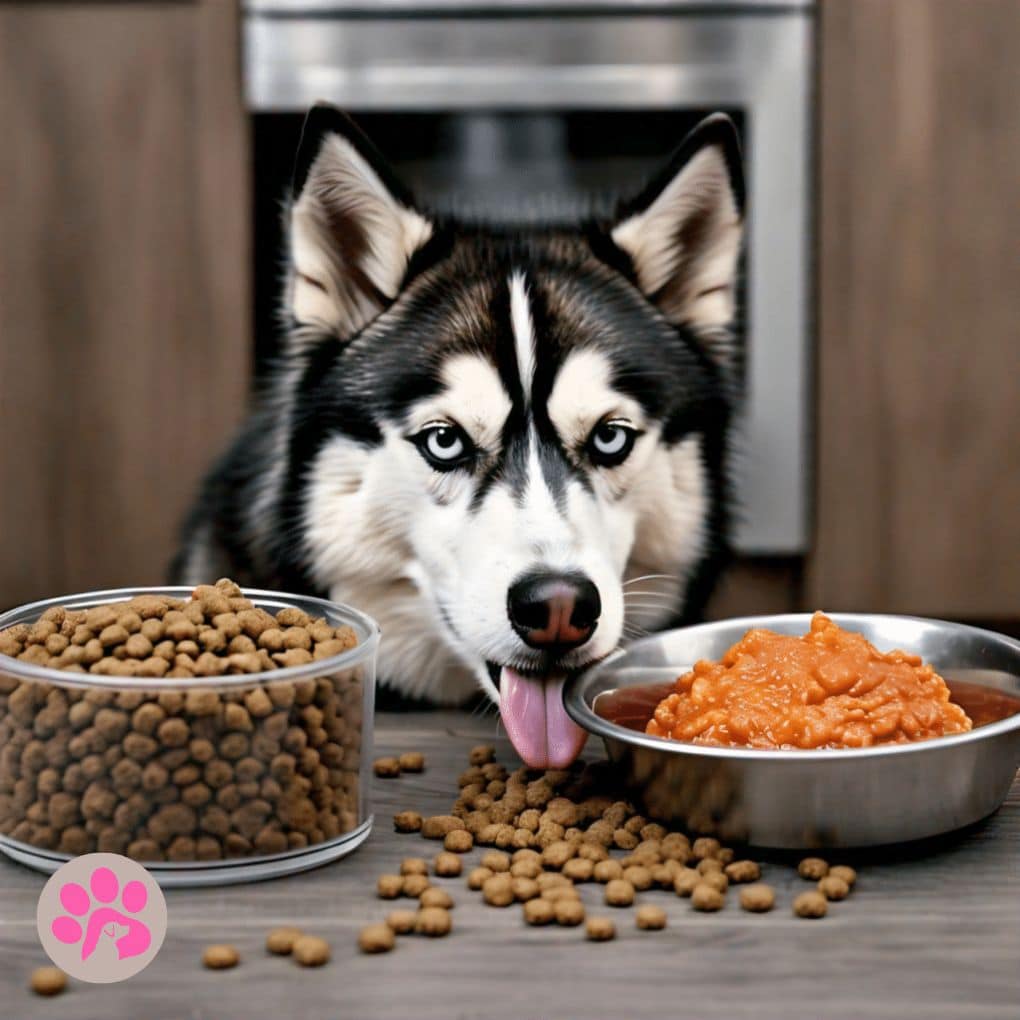
To stay fit, a dog needs more than just food. They want to live a long, happy, and full life as much as possible. The right food for your husky will satisfy more than just their hunger. It will also meet their need for fun, play, and to learn more about the world around them. Let’s feed them something that will make their hands and tails move!
High-Quality Protein Sources in Husky Diet
When you feed your husky, it needs to have high-quality nutrients. Think of protein as the building block for their slim bodies, strong bones, and endless energy. As active dogs that are always up for a new adventure, huskies need high-protein foods to stay in great shape. It’s like putting premium gas in a fast car—your husky deserves the best!
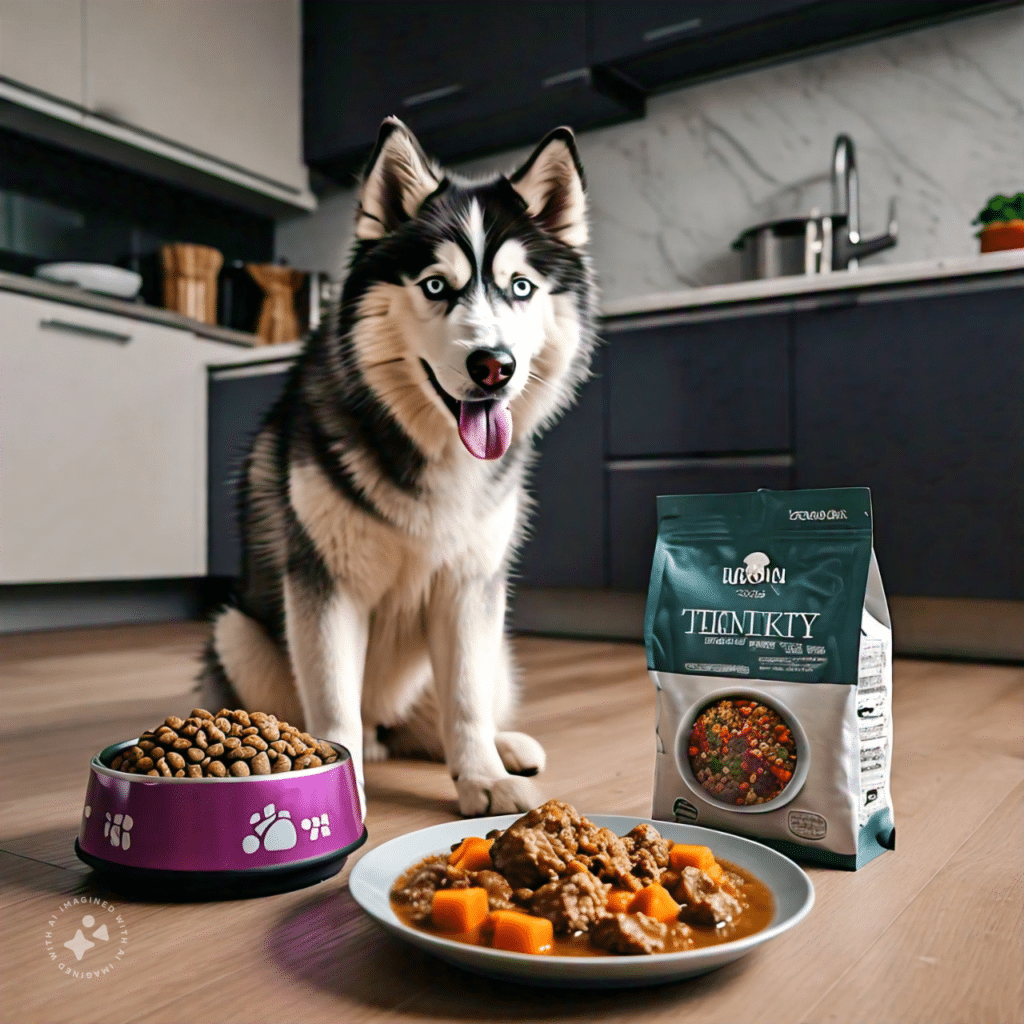
Lean meats like chicken, beef, and turkey are great sources of protein for a balanced husky diet. These meats provide important amino acids that help muscles grow and heal. Fish is also a good choice because it has protein and omega-3 fatty acids that are good for their skin and hair. Another high-protein option is lamb, which is great for dogs that might be allergic to other foods.
Also, don’t forget that organ foods (like liver) and protein sources like eggs can give your husky a wide range of vitamins and nutrients.
Carbohydrates and the Husky Diet
People aren’t the only ones who can gain from carbs. Huskies can too. It’s okay to give them a small amount of carbs even though they mostly eat meat. This will give them quick energy to run around the yard at full speed. For your dog, carbs are like quick fuel. They help them have fun when they play, go for walks, and do all of their other favorite things.
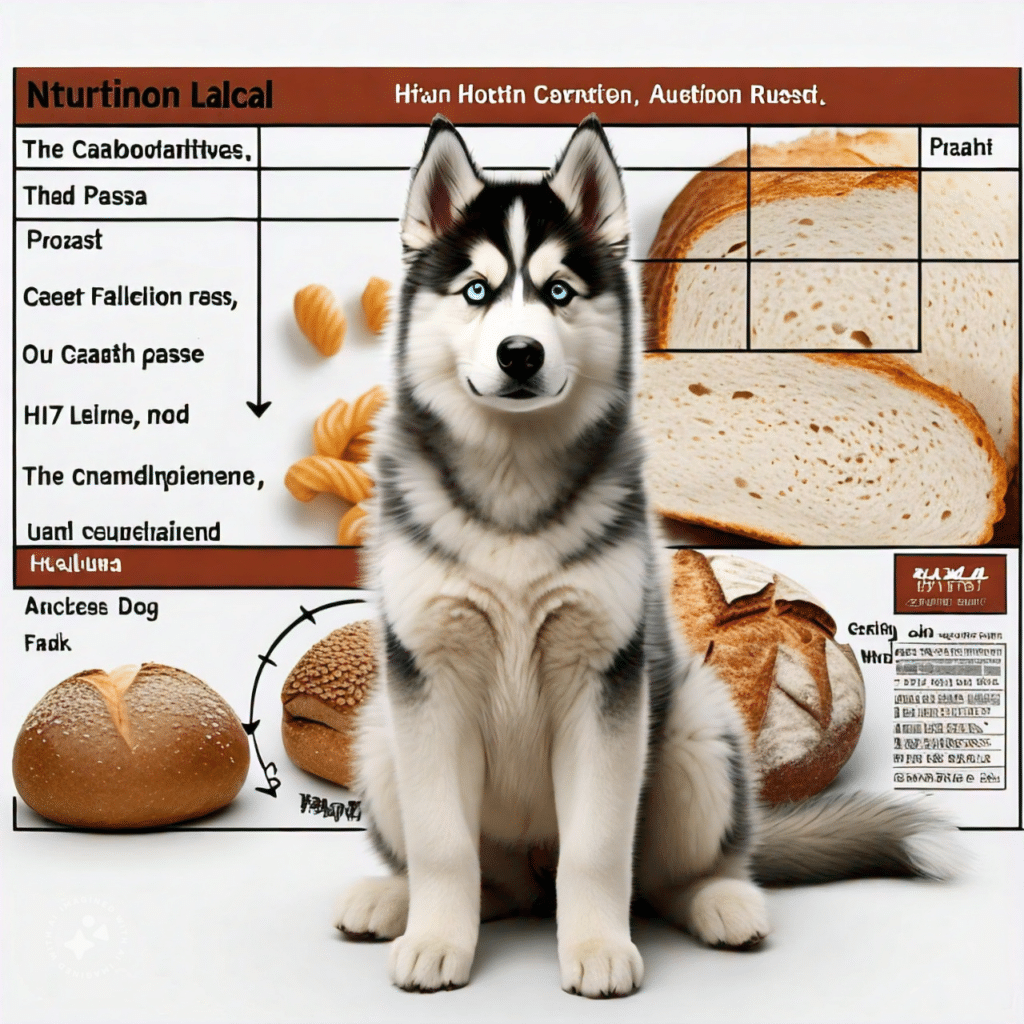
Honey, potatoes, brown rice, and oatmeal are all great foods for huskies that want to eat healthy.Carbs aren’t the most important part of a person’s diet, but they can be helpful. Husky dogs should still get most of their nutrition from proteins and good fats, with carbs being a small part of their diet. Do not eat too many carbs, and the ones you do eat should be good carbs that are not full of sugar or junk. If you give your dog the right amount of carbs, they will stay fresh and ready for any trip.
Essential Vitamins and Minerals for Huskies
Husky dogs need more than protein and energy from meals to be fit. Many minerals and vitamins are essential for them. These small details keep your husky running smoothly. They boost immunity and shine coats.
Your eyes and neurological system benefit from vitamin A, which makes you see mice from a mile away. Spinach and carrots contain this vitamin. Vitamin E is another star. It maintains dog hair health and shine. Eggs and fish oils contain it. Calcium and phosphorus help your husky keep up with its running, jumping, and exploring. These nutrients are in fish, dairy, and leafy greens. Another significant one is zinc. It boosts your immune system and speeds wound healing, which is wonderful for climbing cuts.
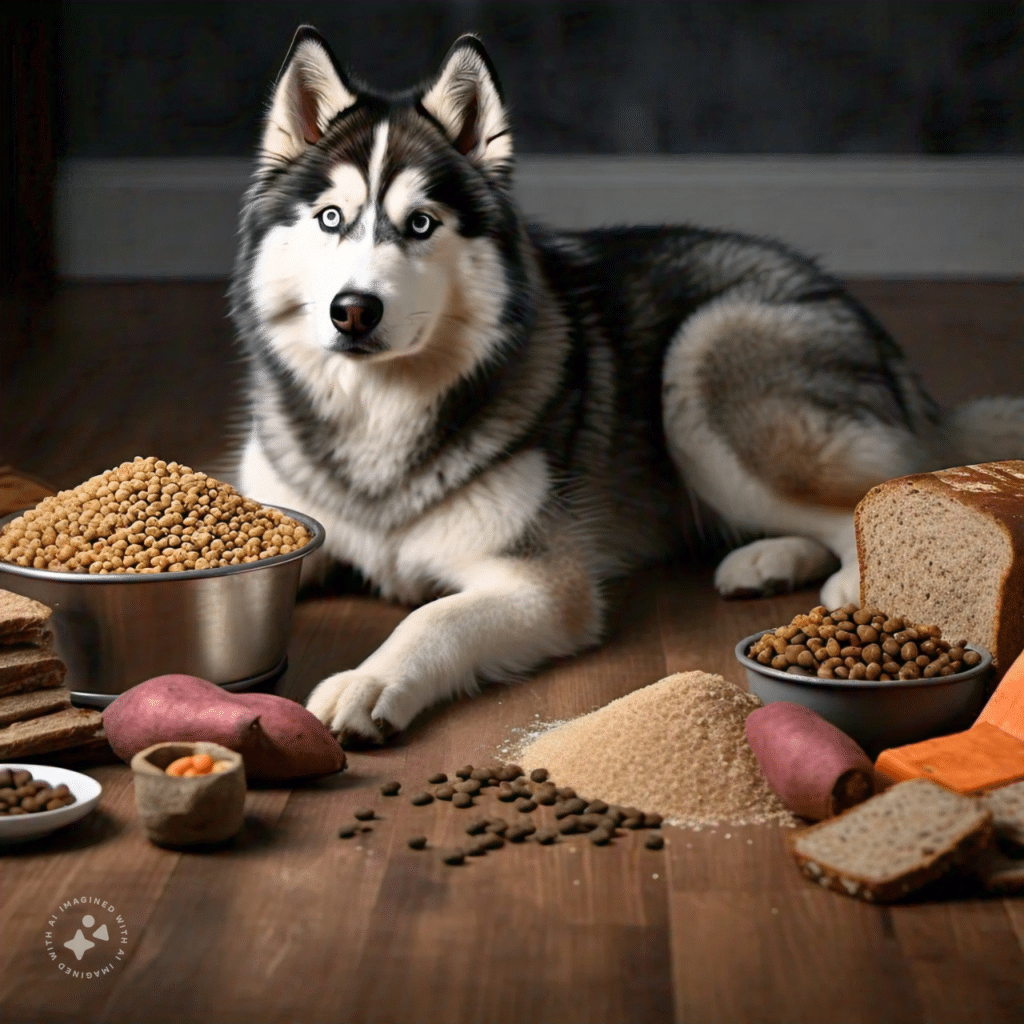
Iron and potassium are crucial. Iron makes red blood cells and poison works muscles. Lean meats and vegetables provide these minerals, which are essential to a balanced diet.
Husky owners who feed them vitamins and minerals are giving them more than food. They provide them nourishment for a long, healthy life. After getting the appropriate mix, they stay healthy inside and out. New adventures every day!
Hydration in the Husky Diet
Along with giving your dog good food, make sure they drink enough water. When huskies play and run, they can lose a lot of water. Making sure they always have fresh water is very important for their health. As long as they drink enough water, their bodies can break down food better. It also keeps their joints smooth and their fur shiny.
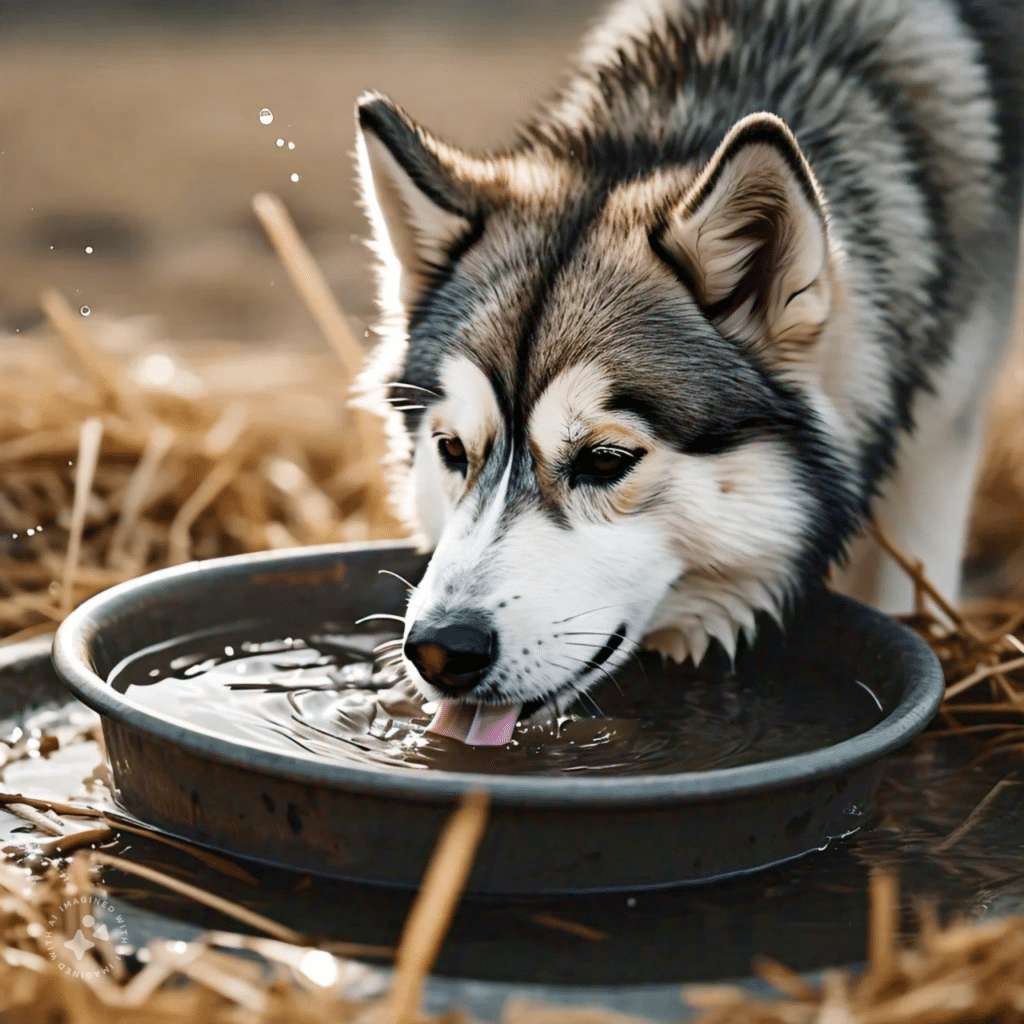
It may not look like huskies are thirsty when it’s cold outside, but the dry air can make them lose a lot of water. Make sure they get enough water by giving them wet food or rice that has been soaked in water. Remember that a husky that has had enough to drink is happy and ready to go for a run, walk, or exercise on a snow day!
Portion Control in Husky Diet
To control amounts, start by following the feeding instructions on the dog food package. However, you should also think about how active your husky is. A husky that likes to run long distances will need more calories than one that is less energetic. If you give treats, don’t forget to change the portions—those calories add up!
You need to watch how much food your dog eats to keep him or her in good shape. Husky dogs need less food than other dogs of the same size because they burn food quickly. It is very important that they eat the right amount of food to stay healthy and avoid getting fat.
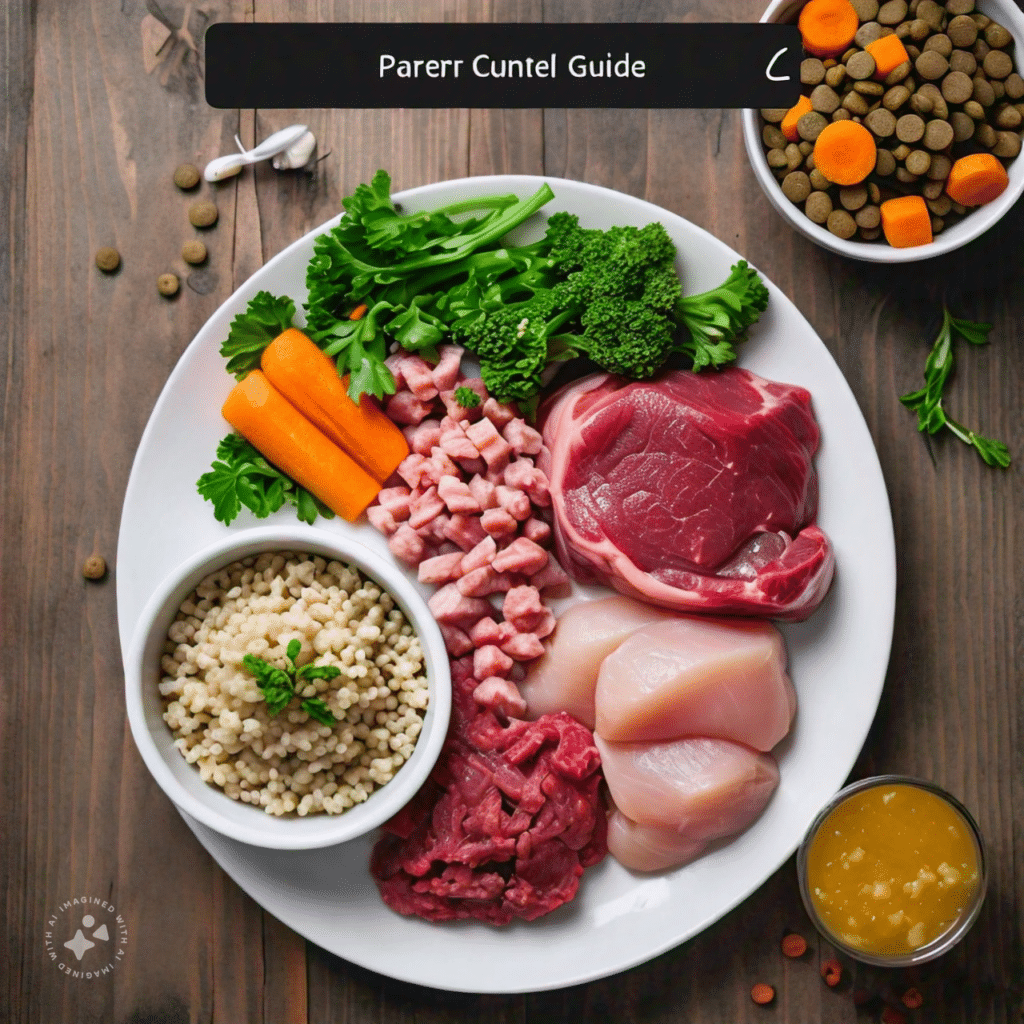
Adult Huskies that weigh between 45 and 60 pounds eat two meals a day, each with two to three cups of good food. Some huskies might only need 1.5 to 2 cups of food a day, but if they are very active, they might need 3 to 3.5 cups. However, baby huskies need to be fed more often and a little more often to keep up with their fast growth. Until they are about six months old, they should eat three meals a day of two to three cups of puppy food. You can switch to two meals a day as they get bigger and make the amounts bigger to fit. Keep an eye on your Husky’s weight, health, and energy level at all times. Also, talk to your vet to make sure they are getting enough food.
Consulting with a Vet About Husky Diet
Talk to a vet about what to feed your dog before you decide. What kind of food is best for your pet will depend on its size, weight, how much it moves, and any health problems it may have. You can talk to their vet about it. You don’t need to think about what or how much to give your dog. Your doctor can help you. They will even tell you when it’s time to switch from baby food to food made for kids.
You can also let your vet know if your husky’s health, behavior, or weight changes. It might be the food they pick. Hey. If your dog is allergic or sensitive, what do you give them instead of food?
Talk to your vet about this. They’ll stay healthy and happy this way. If your dog needs them, they can also give it vitamins that will help it do well throughout its life. Your vet is the best person to help you choose the best food and health care for your husky.
